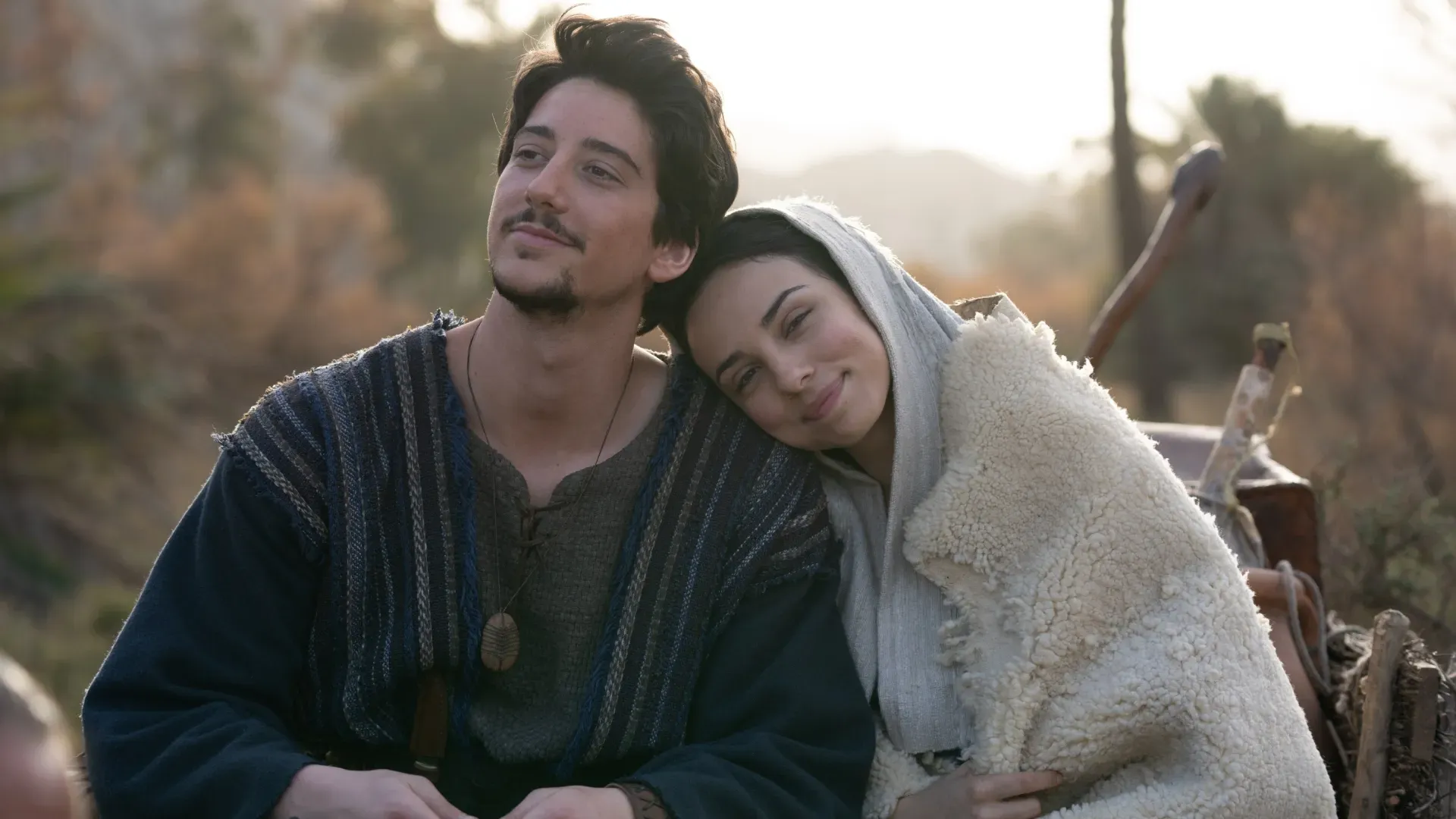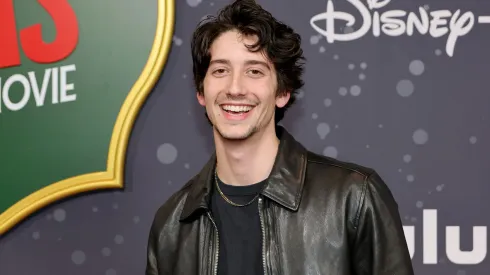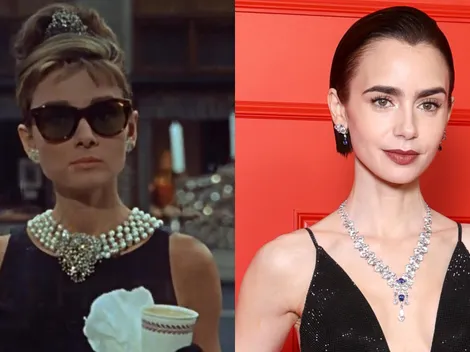From the neon-drenched halls of a zombie-human high school to the solemn, quiet stages of theatrical acclaim, the career of Milo Manheim unfolds not merely as a sequence of roles, but as a vibrant, ever-evolving landscape.
He stepped into the public eye with a kinetic energy that defied his years, instantly carving out a space in the modern cinematic mythology as the charming, misunderstood lead of a wildly popular musical franchise.
His early foundations were poured in the rigorous, spirited world of musical theatre, a crucible that honed his versatility and prepared him for the broader canvas of Hollywood, where he has since painted characters ranging from the dramatically complex to the surprisingly sinister.
Zombies (2018)

(Source: IMDb)
This cinematic moment was less a debut and more a detonation, instantly rebranding the young actor as a star. Stepping into the shoes of Zed Necrodopolis, the charming zombie football player, Manheim became the unlikely protagonist in a vibrant, color-saturated allegory of difference and acceptance.
The performance was characterized by a kinetic energy and an open-hearted sincerity that transcended the bounds of a typical Disney Channel musical. It was a role that demanded triple-threat status—singing, dancing, and acting—and delivered a cultural touchstone that not only launched a massive franchise but cemented his identity in the public consciousness as a powerful voice for unity and change, setting a foundation of immense, global celebrity.
Dancing with the Stars (Season 27, 2018)

(Source: IMDb)
Immediately following his cinematic breakthrough, Manheim embraced the highly visible crucible of competitive reality television. His journey on the dance floor was a defining chapter, a public spectacle where the performer, stripped of a character’s protection, had to connect with a vast, intergenerational audience purely through charisma and physical storytelling.
Reaching the finale and securing the runner-up position demonstrated an undeniable star quality that transcended the Disney barrier. This period was crucial: it proved his work ethic, his ability to command a live stage under intense pressure, and cemented his personal rapport with millions of viewers who rooted for the man behind the zombie makeup.
Generation Me (Off-Broadway, 2017)

Milo Manheim attends IMDb exclusive portraits. (Source: Vivien Killilea/Getty Images for IMDb)
Long before the cameras of Hollywood called, Manheim found his artistic north star on the theatrical stage. His leading role in the New York Musical Festival’s Generation Me serves as a critical, foundational pillar in his career narrative. In this pre-fame era, his committed performance earned him the NYMF Award for Excellence for Best Leading Actor.
This critical validation of his talent in a demanding dramatic musical setting showed the industry a performer capable of tackling weighty themes and complex character arcs, proving his depth and technical skill before his megawatt charm was discovered by the masses. It is the hidden masterwork that defines his dedication to the craft.
School Spirits (2023–Present)

(Source: IMDb)
The role of Wally Clark marked a sharp, strategic turn toward more mature dramatic content outside the Disney ecosystem. In this Paramount+ series, Manheim steps into the world of supernatural mystery, playing a 90s football star stuck in the afterlife.
This performance is a quiet triumph of subtlety; the character’s earnest confusion and longing offer a stark contrast to the high-wattage energy of his previous roles. It established him as a serious young actor capable of handling the emotional complexity and grounded realism demanded by the streaming drama landscape, effectively broadening his appeal beyond the YA musical genre.
Thanksgiving (2023)

(Source: IMDb)
Perhaps the most significant statement of his evolving range was his casting in Eli Roth’s brutal, critically successful slasher film. His role, Ryan, positioned him in an entirely new genre—one built on tension, fear, and survival.
This was a calculated risk that instantly shattered any lingering perception of him as strictly a family-friendly performer. By embracing the horror genre, Manheim demonstrated a fearlessness in confronting darker material, successfully transitioning from a character fighting for acceptance (Zed) to a character fighting for his life, thereby proving his marketability across the cinematic spectrum.
Journey to Bethlehem (2023)

(Source: IMDb)
Taking on the role of Joseph in a major, traditionally released musical film was a testament to his vocal and dramatic gravitas. This performance required a grounding and sincerity far removed from the fantastical worlds of zombies and ghosts.
As a bewildered and ultimately devout figure of history, Manheim delivered a carefully restrained performance that relied on emotional vulnerability and traditional storytelling. It was a clear demonstration of his versatility, proving that his talents could translate to sacred stories and epic, cinematic musical productions, earning him respect from an entirely different sector of the audience.
The Conners (2021)

(Source: TV Insider)
His guest appearances on this acclaimed network sitcom were small, but highly symbolic. Stepping into a legacy series like The Conners allowed Manheim to showcase his ability to adapt to a gritty, established ensemble cast rooted in working-class American drama.
Playing Josh allowed him to trade in high-concept fantasy for grounded realism and sharp dialogue, demonstrating a willingness to prioritize character work and proving that he can hold his own outside the bubble of his own star vehicle, a true sign of a maturing actor.
Doogie Kameāloha, M.D. (2023)

(Source: IMDb)
His recurring role as Nico in the second season of the Disney+ reboot allowed Manheim to explore a familiar, charming persona but with a more sophisticated, flirtatious edge. Nico, a street-smart teen who serves as a romantic foil to the protagonist, provided a relaxed setting for the actor to practice his effortless charm and chemistry within a contemporary, serialized television format.
It was a lighthearted, yet pivotal, role that showed his ability to inject energy into an existing ensemble cast and solidify his place as a reliable romantic lead with undeniable screen magnetism.
Ghost Whisperer (2009)

(Source: IMDb)
While a brief and early appearance, his turn in an episode of Ghost Whisperer holds a special place as the actual, documented start of his professional screen career. Though he was still a child, this role acts as the starting point in the timeline, a necessary bookmark that shows his early exposure to set life and dramatic television. It stands as a testament to his innate desire to perform, signaling the initial curiosity that would eventually blossom into his current high-profile career.
American Housewife (2018–2019)

(Source: IMDb)
This recurring role allowed Manheim to explore the structure and rhythm of network comedy. Unlike the fantastical worlds of his other projects, playing a character in a classic family sitcom environment required different comedic muscles—relying on timing, reaction, and blend with an ensemble cast.
This experience provided a valuable training ground in traditional television comedy, proving his adaptability and range beyond musical theater, solidifying him as a performer comfortable across diverse genres.





